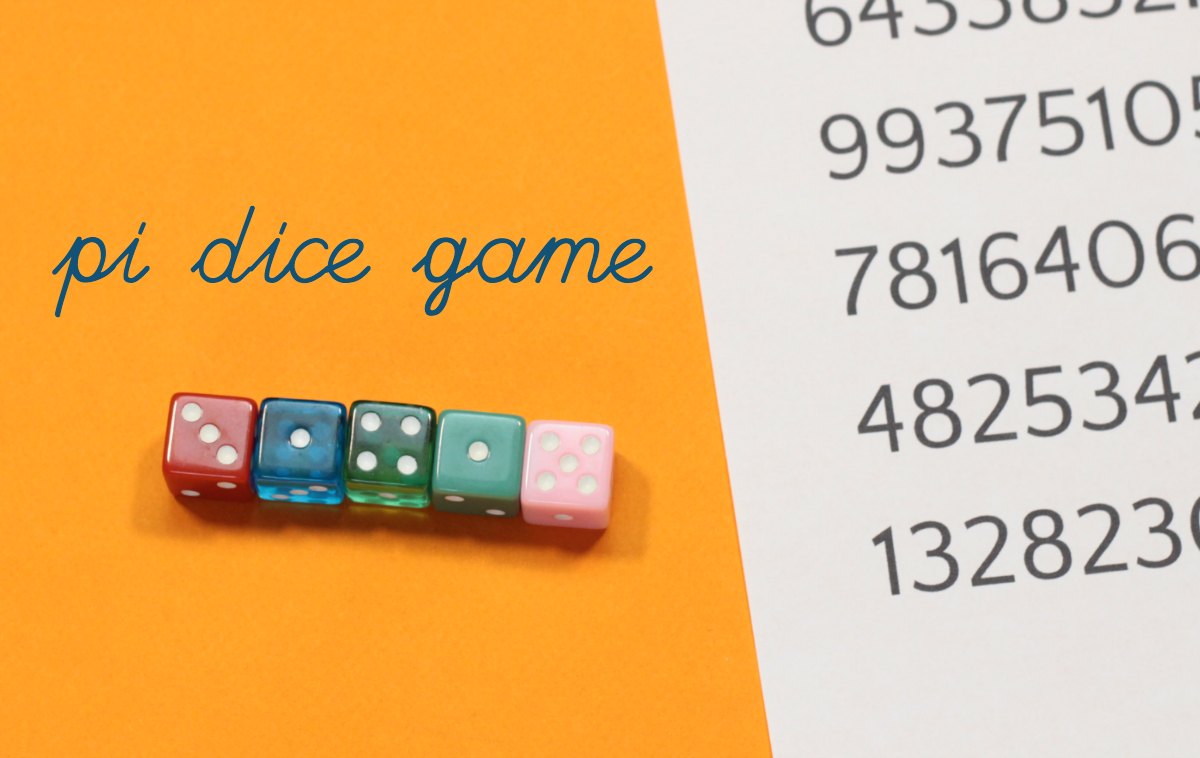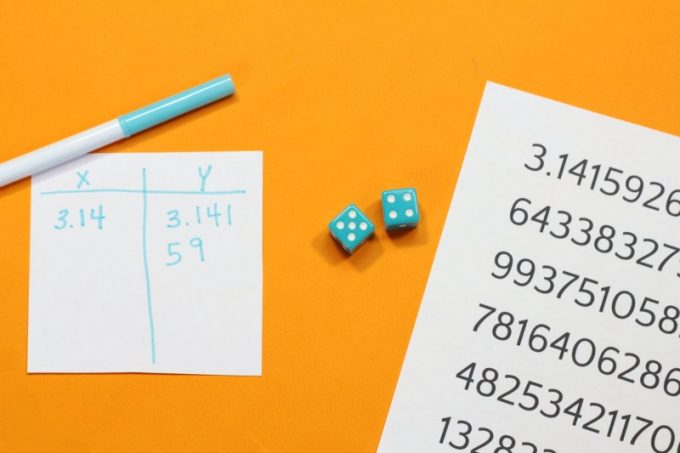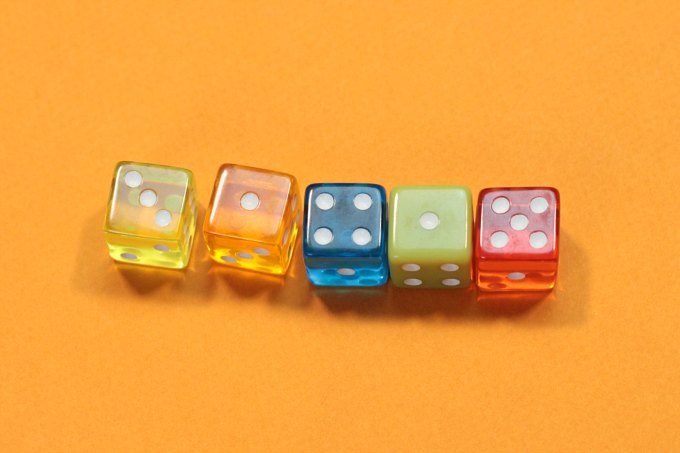In case you have been living under a rock, we love dice games! And of course because my eldest son was born with with an obsession for numbers we love to celebrate Pi Day (March 14th), as we did once by creating these gorgeous pi city skylines. This year I thought, hmmm, how can we turn pi (π) into a pi dice game?

I noticed that Math Geek Mama invented a cool pi themed card game, so I figured we would turn our thoughts towards a pi dice game that would help kids memorize the numbers in pi.
First, what is π?
π is the ratio of the circumference of a circle to its diameter; the numbers in π never repeat and contain no patterns. It is also an irrational number, meaning it is a real number that cannot be written as a simple fraction.
Pi is a transcendental number, too, which sounds like it enjoys meditating in a lotus garden but really it means it "is a real or complex number that is not algebraic—that is, it is not a root of a nonzero polynomial equation with integer (or, equivalently, rational) coefficients."* Meditating in a lotus garden sounds pretty good right about now, doesn't it?
π begins 3.14159..., but mathematicians have so far calculated it to more than a trillion digits!
The pi dice game is super simple, and hey! you can adapt it to any string of numbers you want. (Note: this post contains affiliate links)
What you need:
- 2 dice; it's waaaay more fun when everyone has their own colored dice!
- This printout of the number π
- Pen and paper to keep track of your rolls
- 2 or more players who love the number π!

Objective:
Roll the largest string of pi digits.
How to play:
Taking turns players roll both dice. The object is to roll out the digits of pi. On the first roll, each player is aiming for a 3. This can be a roll of 3 on one die, or the combination 1-2. If the player is successful, he records his number and takes another turn, aiming to roll the next number in pi. If he does not roll the correct number, his turn ends and game play passes in a clockwise direction.
If a player rolls two numbers in the pi sequence, he can record them both. Each die can only be used for one number, so a roll of 5-4 could count as a 5 and a 4, or a 9, but not a 5 and a 9 (5+4).
For example:
Player 1: rolls a 1-2, records "3"
Player 1 rolls again: rolls 3-4. Turn ends.
Player 2: rolls 3-1, records "3.1"
Player 2 rolls again: rolls 2-2, adds a 4 to his record, which now reads "3.14"

How long does the game last?
Determine ahead of time how long you wish to play. Play can be limited by time–for example, whoever has the most pi digits after 10 minutes is the winner. Or, the quantity of numbers can be set–for example, whoever reaches the 25th digit of pi first is the winner.

Note: this pi dice game does not teach children the mathematical concept of π, but it is a fun way to while away the time on Pi Day and it will give kids a hands on feel for the enormity of the number itself!
Don't forget to check out more number fun:
And of course, our pi skyline activity!
*It's true, I got that definition from the Wikipedia page.



johnhenry says
This is great; thanks! I'm going to share it with my school's math teacher for the next "pi day". A lot of our students will really get into it.
On a semi-related note, not so long a go, a friend described his experience with navigating a telephone menu as "entering all the digits of pi".
Erica says
I hope the students enjoy it!
johnhenry says
Argh! That should be "ago", not "a go" in my posting above.
Andrew Smith says
Into the pi dice game that you have mentioned here, I think it would be a great bonus score for farkle. It already contains three numbers necessary for a basic score. Two ones and a five which would be 250 points in farkle. if the player was also to roll a three and a four in conjunction with the two ones and a five it could be scored as a pi bonus say worth an additional 300 points or something I don't know. 250 plus the 300 making it 550 points. or for the sake of pi just make it 314 points instead of 250.
Andrew Smith says
Just a thought as I walked away from my phone. me and my kids like to play Texas farkle which uses an exponential multiplier with every duplication of a number. So with the pie bonus one could multiply his current score by 3.14 that would be a game changer.
Andrew Smith says
One more thought about pi as I was walking away from my phone not related to dice. Pi poker, not so much a poker game but a draw and discard game with a shared ante pot in the middle. Everyone puts in three tokens for the sake of pi, is dealt five cards, and then gameplay begins with drawing and discarding until one has accumulated a three two aces a four and a five. and I suppose as a second best hand or equivalent hand two aces a four a five and a nine.
First to accumulate the first five digits of pi wins the pot.
Erica says
Thanks for sharing your ideas about Pi games. Have a great Pi Day!